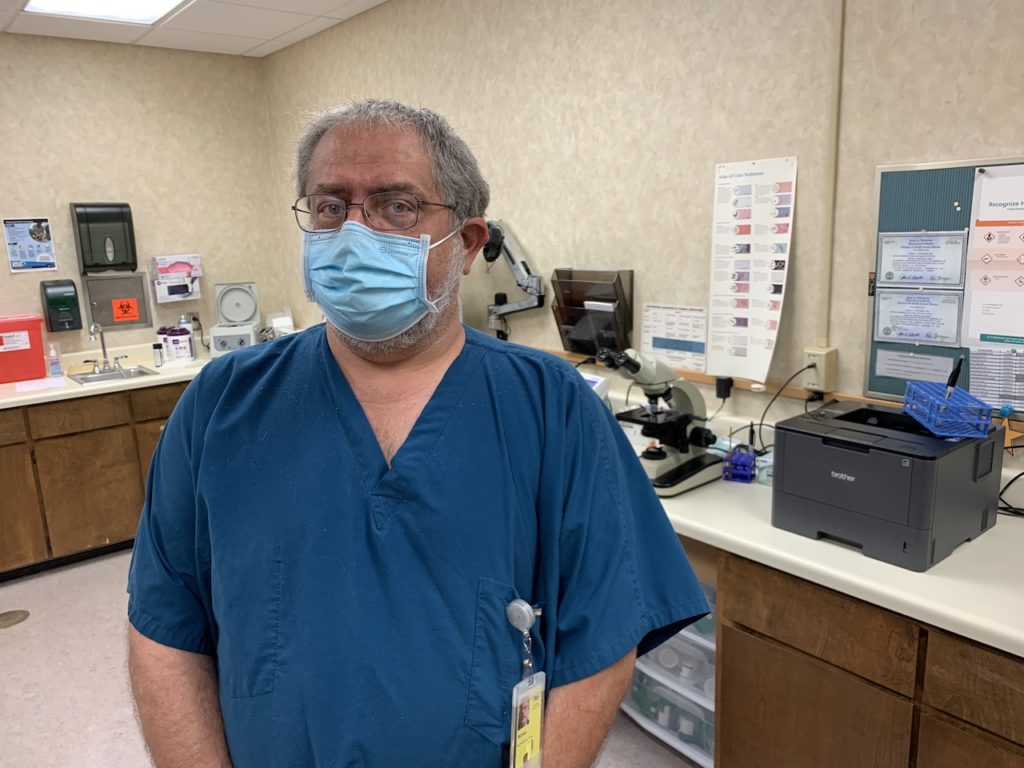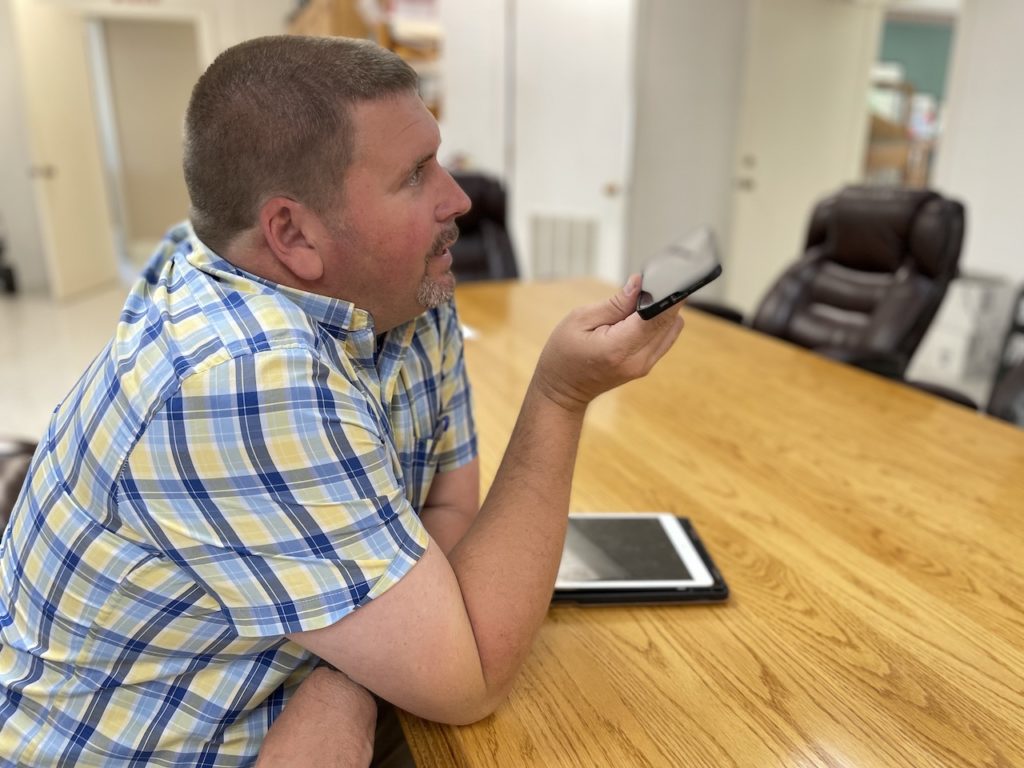
The sleepy town of Linden, Tenn., on the Buffalo River had its own hospital up until late 2020. The 44-bed facility served Perry County’s population of 8,000 up until it abruptly shut down.
Shelly Sharp was a licensed practical nurse there — until she wasn’t.
“They came in and said the hospital would be closing, and the next day or two, they closed it,” Sharp says. She now works at the town clinic where patients often show up with chest pain or other emergencies. “It’s frightening.”
Perry Community Hospital was in serious financial trouble before the business collapsed. The state’s dominant private insurer, BlueCross BlueShield of Tennessee, says the hospital was overcharging for lab tests and demanded nearly $5 million back.
Rural hospital closures only picked up steam during the pandemic. And some of those that went out of business, like Perry Community, may have a harder time than others attempting a comeback. Many were run by companies in the lab business that left behind difficult financial and legal problems to unwind.
“It’s a common problem, unfortunately,” says Michael Perkinson, a lab technician who worked at the hospital. Perkinson now works at the town clinic where he still screens vials of blood for glucose, electrolytes and lipids — just on a much smaller scale.
He says trouble for the hospital started in mid-2018 with a new owner from Florida, Nelmed Holdings. President Nelandes Coles could not be reached after sending messages through a law firm that has represented the company. The hospital started buying fancier lab equipment, and samples began streaming in from out-of-state.
“We did a lot of drug screens out of Florida. Thus, the problem,” Perkinson says.
 Blake Farmer WPLN News
Blake Farmer WPLN NewsMichael Perkinson is a lab tech, who now works at the clinic in town.
Insurance contracts often allow small, rural hospitals to charge more for lab work than freestanding labs to help prop up hospitals in remote areas. But, at Perry Community, BlueCross BlueShield says an audit found improper billing codes and larger in-patient charges for people who had never been patients at the hospital.
Monthly billing spiked from $350,000 to $4.5 million after the takeover, according to federal litigation. And BlueCross said Nelmed did not alert the insurance company of the change in ownership as required under contract. An arbitration panel recently sided with BlueCross, which has been challenging similar schemes across the region.
The lone hospital in neighboring Decatur County also came under investigation for inflated lab billing before closing. Another Florida lab company snapped up three hospitals in East Tennessee — two of which are now closed. And in 18 rural hospitals across the Midwest, Florida businessman Jorge Perez was just convicted in a $1.4 billion fraud related to lab billing. Eight of those hospitals shut down.
Accountant Paul Traczek of Wipfli helps investors decide if these shuttered hospitals can profitably reopen. He said the problem is that insurance companies may not work with a new owner until the disputed payments are settled.
“Really, it’s determining … are you sort of stuck with [that liability]? Because if you are, no matter what you do, it may not work,” he says.
And the debts pile on top of other legal concerns, like who still controls the hospital.
In Linden, Tenn., yet another Florida lab company, Expertus of Orlando, bought the hospital just months before it closed, though lawsuits in Broward County, Florida, show the company never paid the full $500,000 purchase price. Expertus CEO Jason Weil blames the former owner for all the trouble.
“I knew I was taking on problems, but they were problems that were not disclosed to me,” Weil says in an interview.
Weil says he still hopes to reopen the hospital himself, but leaders of Linden have serious doubts. And they’re not waiting around.
Mayor Wess Ward has been trying to help find a buyer. He’s even shown a few investors around, though he says he’s not even sure who unlocked the doors.
 Blake Farmer WPLN News
Blake Farmer WPLN NewsLinden Mayor Wess Ward takes a call from potential buyers of the Perry Community Hospital.
Ward has been under intense political pressure. Residents worry about what happens when someone has a stroke and drive time makes all the difference.
“You’re talking about the peace of mind for your citizens that they have a hospital two minutes down the road,” he says.
Then, there are the economics. New industrial employers or even retirees are hesitant to relocate when there’s no ER. And hospitals are big employers on their own.
“You’re talking 120 jobs in this community. That’s a lot,” Ward says.
Some promising news came through in late April. A group of investors from New Jersey called to tell the mayor they’re on track to take over this summer.
“I’m tickled to death, y’all,” he tells the investors on the other end of the line.
Ward says the prospective buyers also happen to be in the lab business, but he has more confidence in this group since it includes some doctors. Still, he says he plans to keep a closer eye on the hospital from now on.

